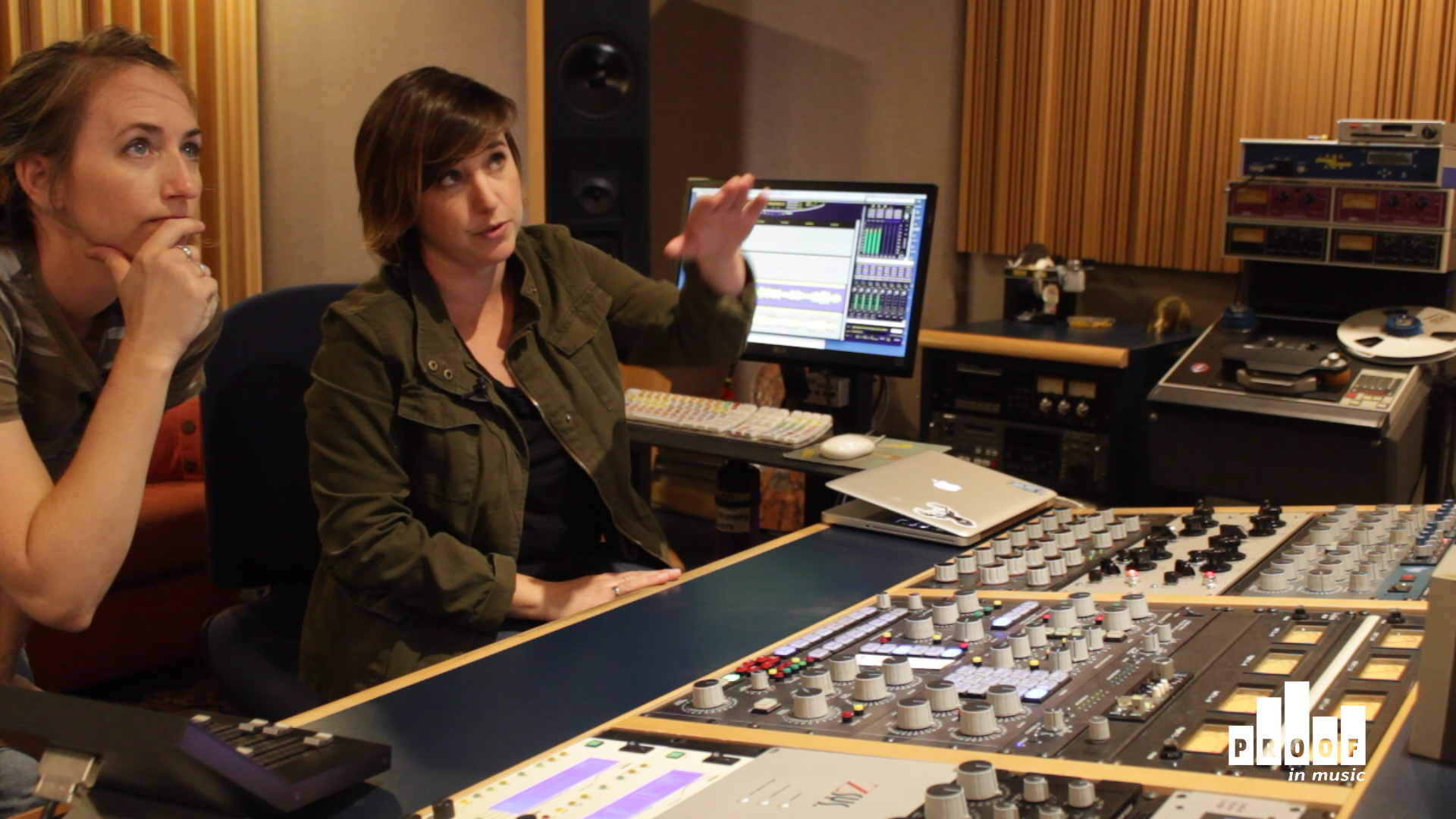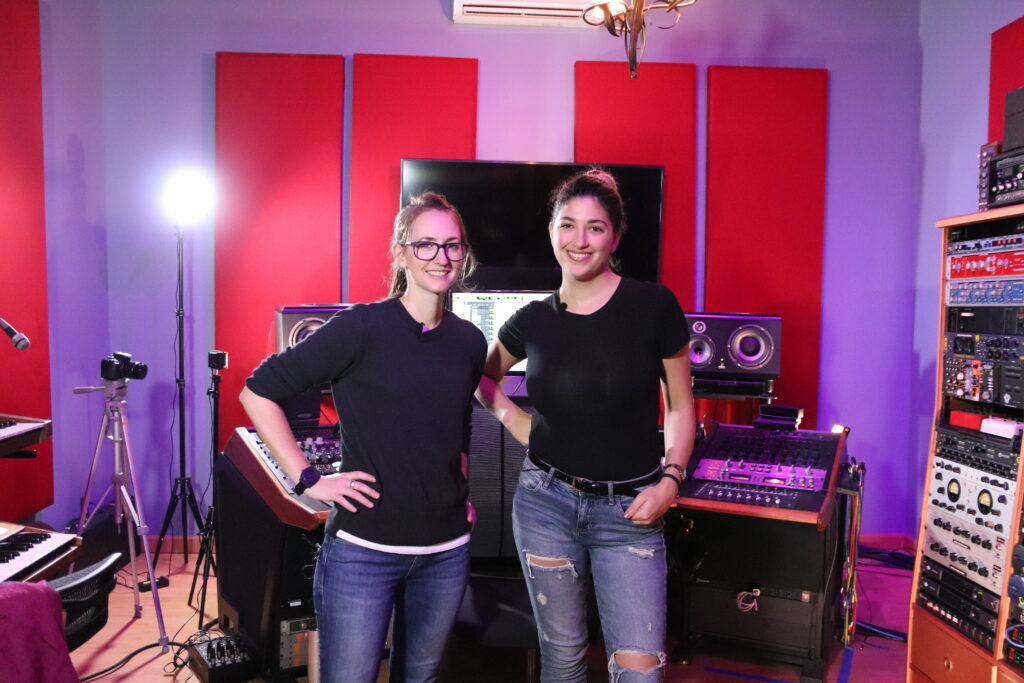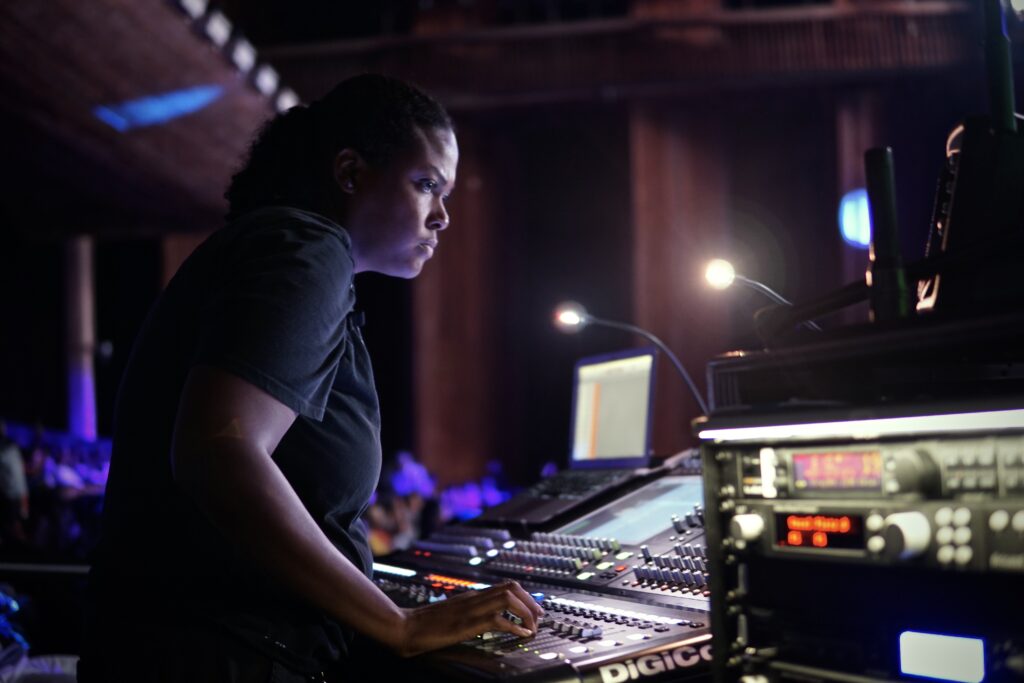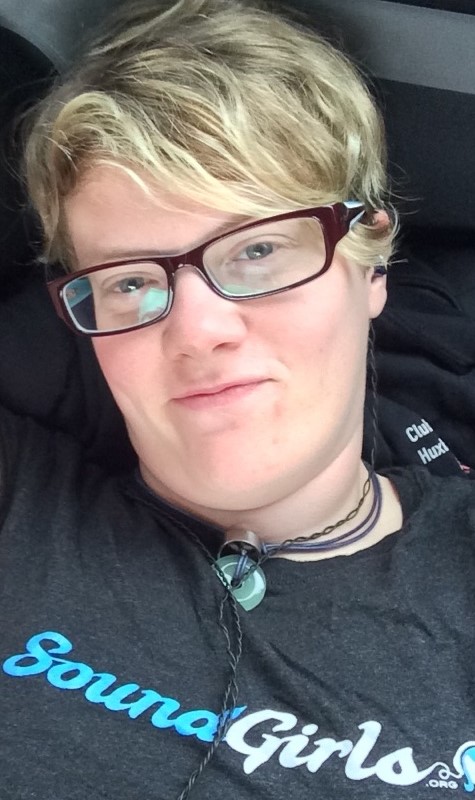Anyone Who Says They Can’t Find Women to Work With Hasn’t Bothered Looking
Proof in Music a project of Jess Fenton a music producer, mix and recording engineer, launches today. A year and a half in the making, Proof in Music is another important platform to increase the visibility of women who are paving their own career paths behind the boards. The first season of 12 episodes shines a spotlight on women audio, mastering, mix engineers, and producers.
Jess says “there’s a lingering perception that women don’t do this kind of work or aren’t interested or that there’s so few of us – that’s simply not true. This series is proof that not only are there a ton of women paving their own career paths behind the boards, but they are all over the country and all at various stages in their careers.” Each episode features interviews, in-studio demonstrations, approach to their jobs, favorite production techniques, share their philosophies, and production choices. Jess says “It’s very technically-driven.”
The first season features
- Ainjel Emme – Los Angeles – Music Producer
- Lilian Blair – Seattle – Audio Engineer
- Kia Shavon – Brooklyn – Mix Engineer
- Raelynn Janicke – Nashville – Mastering Engineer
- Hunjiya – Miami – Music Producer
- Ashley and Amy of Crosspick Studios – Austin – Audio Engineers
- Vira Byramji – New York City – Mix Engineer
- Rebekah Wineman – New York City – Mastering Engineer
- J’Nae Morrae – Washington DC – Music Producer
- Lauren Evans – Memphis – Audio Engineer
- Mackenzie Spear – Nashville – Mix Engineer
- Anna Frick – Boulder – Mastering Engineer
Jess would like to point out how easy it was to find women to feature. “ I used The EQUAL Directory, posted to the SoundGirls Facebook group, searched hashtags on Instragram, and received so many referrals from other women in the business. Anyone who says they can’t find women to work with hasn’t bothered looking.” SoundGirls would like to thank Jess for utilizing our resources and hiring SoundGirls to work on this project and of course a huge congratulations to Jess.
Jess Fenton Interview
In just five short years Jess has made a huge impact in the audio world for women and herself. She works as a freelance mix and recording engineer and producer. She also records and edits podcasts, voice-overs, and audio advertisements. SoundGirls would like to thank Jess for this interview.
When did you discover audio as a career path?
Honestly, I didn’t know it was a career path that a woman could take. I spent a lot of time in recording studios as a teenager and throughout college (played in a bunch of bands), throughout all those visits I only came across one woman working in the studios. However, about five years ago, when my corporate 9-5 job was eliminated, I decided to turn my audio/music hobby into a full-time job.
How did you get interested in audio?
When I was 15, my guitar teacher suggested I get a 4-track to start recording at home. Somehow she knew I was going to love it. So I turned around and taught guitar for $5 a lesson for an entire year to save up to buy one. I’ve been hooked ever since.
Did music and audio interest you while you were growing up?
My mom is a guitar player and artist, she raised four musicians! So music was always present in the house. After she caught me sneaking her pristine 1970’s Yamaha acoustic guitar to teach myself chords, she gave me my first acoustic. After I bought my Fostex 4-track as a teen, it all came together, my love for music production was born.
Did you attend a University/College/Trade School
Yes, Virginia Commonwealth University and studied business. I graduated with a Bachelor of Science degree.
How did you get your start?
Craigslist. I put out an ad to mix songs for free so I could build my portfolio. I lucked out with an amazing female rapper who was so excited to work with a female mix engineer, she ended up hiring me to mix several of her songs. Building that portfolio plus a ton of networking helped jumpstart my freelancing in music and audio.
How did your early internships or jobs help build a foundation for where you are now?
Working in the corporate 9-5 world taught me how to navigate bullshit. After I left the 9-5 sector, I applied for a lot of internships but was rejected by all of them, mostly because I was an “older” woman not seeking college credit. I wasn’t what they wanted.
I did manage to land an informal “internship” though. When I lived in Berkeley CA, I contacted a bunch of smaller, local studios to see if I could sit on sessions, help, learn, etc. One (out of 6) said yes and let me re-rack their whole control room. I learned that instead of waiting for an opportunity to come to me, I needed to go out and create it. And that concept is very much a part of my everyday foundation.
What did you learn interning or on your early gigs?
When I re-racked the control room at the Berkeley studio, it was the first time I put my hands on the real deal, actual gear – UA1176 compressors, Neve preamps, Pultec EQs, and so much more. That moment was huge for me. The art of the signal chain suddenly made sense. Recording clicked.
Did you have a mentor or someone that really helped you?
I didn’t. Although I feel like I have 13 mentors after filming the Proof In Music series.
Career Now:
What is a typical day like?
I usually start my day recording or mixing a podcast. Then I move on to music projects, which could be composing original music for a podcast, or tracking guitars for a local artist I’m working with. Some days I’ll record, voice and edit audio ads (which is the most amusing gig!) Once the client work is done, I allow myself to work on something personal – for a long time it was the Proof videos.
How do you stay organized and focused?
I have a notebook for every client/project. That keeps it pretty organized. It’s easy for me to stay focused because I love what I do. However, when I lose motivation, I take a break and watch an episode of Gilmore Girls to reset my brain.
What do you enjoy the most about your job?
I love taking ideas, raw audio, sounds, voices, and turning them into a complete, polished, finished product. Every product is different so it never gets boring.
What do you like least?
When clients don’t want to invest in the absolute best audio quality. That kills me.
What is your favorite day off activity?
Baking! I love to bake bread, pizza dough, cinnamon rolls, dinner rolls…and more!
What are your long term goals
To continue working for myself. I’d like to continue the Proof series for as long as I can.
What if any obstacles or barriers have you faced?
It’s always an obstacle when people don’t believe that I’m the audio engineer in the room. Always have to work hard to overcome that initial perception and gain the trust of the client/guest/artists team.
How have you dealt with them?
I just stay professional, stay firm. I don’t let them see me sweat.
The advice you have for women and young women who wish to enter the field?
Create your own opportunities. Don’t wait for anyone, just go do what you want to do. If you find the path you took isn’t what you thought it was, don’t dwell on it, just go take another path. And never hesitate to ask for help.
Must have skills?
Thick skin.
Favorite gear?
I really love my Moog Subphatty right now along with my WA73+EQ preamp.
The SoundGirls Podcast – Jess Fenton: Proof in Music, Fostex 4 TRK, and Coffee
Find More Profiles on The Five Percent
Profiles of Women in Audio





